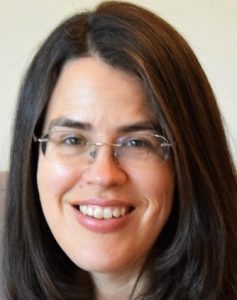 Paula Wright is a GP, educator and appraiser
Paula Wright is a GP, educator and appraiser
It is that time in your revalidation cycle and you are wondering who to ask for your colleague feedback. UK GPs have to do a multi-source feedback survey (MSF) across their scope of practice every five years. In the wide range of clinical working environments now available for GPs, opportunities for professional interaction have changed, as has the way we develop a view on the clinical practice of our colleagues. This creates some interesting challenges for the MSF, both in terms of who you should ask to complete your feedback, and whether you feel able to respond to a feedback request from a colleague. When you MSF you are asked to indicate how long you have known them and how often you have contact with them. Knowledge of a colleague’s behaviour, skills and values can happen rapidly with frequent contact and slowly with longer term less frequent contact.
Changing models of service
If your work setting provides no opportunities for peer interaction, consider joining a practitioner or peer support group.
In the old days the traditional GP might meet with colleagues several times a week over coffee, discussing allocation of visits and difficult patients. In meetings they might discuss significant event audits, and benchmarked audit data on prescribing, referrals or admissions. This was supplemented by informal feedback from shared patients, or from seeing colleagues’ notes, or from discussing patients in meetings. All of these sources can help build a picture of colleagues’ knowledge, skills and attitudes.
Changes to our GP services have impacted on how we gain knowledge of each other. Many of us are now working in very large teams, our interactions may be dispersed across multiple sites, and the likelihood of sharing a significant caseload with any given colleague is small. Even in smaller practices, more pressured days may mean fewer meetings, and fewer opportunities for chats during the day. Working remotely also reduces potential interactions between two clinicians. This also occurs in services where GPs may work as the sole clinician on duty for example in urgent care. Working as a locum across several practices can bring similar constraints.1
In urgent care call centres, we are in a privileged position to be sometimes within earshot of a clinician consulting on the phone, providing real time experience of a colleague’s practice. Those of use who work in the clinical assessment service of an ambulance service will carry out regular discussions each week to assist ambulance crews on scene with admission avoidance.2 These are complex discussions navigating diagnostic uncertainty, shared decision making, capacity and autonomy often leading to a joint exploration of alternatives to admission, which depend on the local services. These interactions are an amazing window into clinical practice. However, the size of the organisation can mean a GP may only ever have such a conversation once or twice with the same colleague in a year. It is difficult to incorporate this knowledge which paramedics gain of us as GPs into our MSF.
Electronic records also provide a window into clinician practice. They allow us to see colleagues’ clarity of clinical reasoning, thoroughness of assessment, shared decision making and management of risk and safety-netting. Reviewing another clinician’s entry might occur when one is treating the same patient (which occurs less and less in larger organisations) or when handling their lab results, or letters or occasionally in an audit situation. GPs scrutinised by NHS England for their performance will find that a record review of around 20 consultation records forms a significant part of their assessment. The clinician is usually not observed in action.
Colleague interactions: where to have them?
Remote GP services, often operating over a national footprint, usually have thriving virtual discussion rooms, using TEAMs groups or Slack. Regular clinician engagement in these, provides not only excellent opportunities for shared learning and support but also development of trust and for clinicians to gain meaningful insight into each others’ clinical practice.
Clinician WhatsApp groups are sometimes used for professional discussions but the value these groups offer depends wholly on the level of interaction, engagement and trust which develops in that group. Very large groups without clear ground rules, are unlikely to foster the high trust space needed for meaningful discussions so clinicians must beware of asking WhatsApp contacts to complete MSF if they have simply been passive observers.
Clinicians who do not engage in colleague interactions may struggle to carry outs MSF. If your work setting provides no opportunities for peer interaction, consider joining a practitioner or peer support group.
When considering whether you know a colleague well enough to provide feedback, ask yourself… would you trust them to treat a close relative of yours?
Practitioner groups meet regularly , often for years, providing peer support and continuing professional development. This can include case discussions and SEAs as they are safe spaces where significant trust can develop. This requires explicit ground rules for confidentiality, membership, commitment, participation, engagement and respect (ref learning groups).3,4 Regular case discussions create a legacy of knowledge of a clinician’s practice over a period of time, an important basis for both asking for, and giving, colleague feedback. With regular meetings it is not difficult to build up 20 cases discussed for your colleagues to understand your clinical practice.
Should you agree to give colleague feedback?
When considering whether you know a colleague well enough to provide feedback, ask yourself: a) would you trust them to treat a close relative of yours? b) would you ask their advice about a case of your own c) would you want to be working alongside them in a pressured service?
The clinical consultation is powerful lens through which we understand each-others’ practice and it can be used in case discussions, when looking at records, as well as when observing colleagues (for example in call centres).You may feel able to make that judgement about colleagues you work even though you may have never managed the same patient, or even been in the same room together and may not have reviewed many of their records. It has never been more crucial to engage in clinical forums, or practitioner groups where these are safe spaces for clinical discussion. The case discussion is a powerful lens.
We should think twice before refusing to complete feedback on a colleague. Even if there are several MSF questions you cannot answer there may be many that you can, and comments provide potential for growth. Appraisees also need to feel empowered to innovate feedback tools which help capture the ‘less standard’ but rich interactions which occur in the range of work situations described above, and which can still provide the essence of the knowledge of each other.
References
- Jelley D, Morrow G, Kergon C, Burford B, Wright P and Illing J (2010) Revalidation processes for sessional GPs: A feasibility study to pilot current proposals. Report to the RCGP. www.rcgp.org.uk/_revalidation.aspx
- Planning to Safely Reduce Avoidable Conveyance. Ambulance Improvement Programme. https://www.england.nhs.uk/wp-content/uploads/2019/09/planning-to-safetly-reduce-avoidable-conveyance-v4.0.pdf
- Morrow G, Rothwell C, Wright P. Self-directed learning groups: a vital model for education, support and appraisal amongst sessional GPs. Educ Prim Care. 2012 Jul;23(4):270-6. doi: 10.1080/14739879.2012.11494120. PMID: 22925959.
- Wright P, (2013) Self-directed learning groups for GPs: a support framework for revalidation. BMJ Careers. BMJ 2013; 346: 4 doi: https://doi.org/10.1136/bmj.f2692 (Published 08 May 2013)
Featured photo by Towfiqu barbhuiya on Unsplash.







Another excellent and thoughtful article